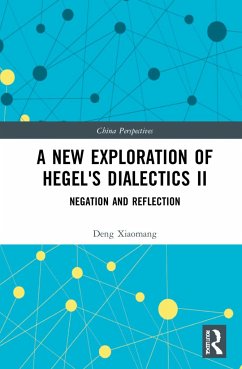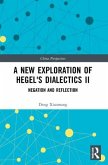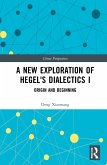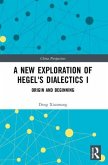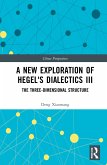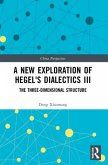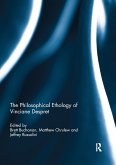Focusing on the self-negation and reflective forms of Hegel's dialectics, and representing the spirit of nous and logos respectively, this volume explores core functions in the subjectivity, free spirit and practicality of Hegelian dialectics.
As the second volume of a three-volume set that gives insights into Hegel's dialectics and thereby his overall philosophical thought, the book proposes and discusses the soul and form of Hegelian dialectics. As the soul of Hegel's dialectics, which represents the spirit of nous, self-negation plays a fundamental role in Hegel's philosophy, and all other dialectical laws derive from this core principle, with which the subjectivity and free spirit of Hegel's dialectics take shape along with their essential practicality. The form of expression belonging to this negative dialectic as such is the reflective mode of thinking that represents the spirit of logos, and it is this reflective mode of thinking that follows the logical procedure of "reflecting on reflection," rendering the progression of Hegel's dialectical subject lawful, rational and logical. The title will appeal to scholars and students interested in Hegel's and Marx's philosophy, German classical philosophy and Western philosophy.
As the second volume of a three-volume set that gives insights into Hegel's dialectics and thereby his overall philosophical thought, the book proposes and discusses the soul and form of Hegelian dialectics. As the soul of Hegel's dialectics, which represents the spirit of nous, self-negation plays a fundamental role in Hegel's philosophy, and all other dialectical laws derive from this core principle, with which the subjectivity and free spirit of Hegel's dialectics take shape along with their essential practicality. The form of expression belonging to this negative dialectic as such is the reflective mode of thinking that represents the spirit of logos, and it is this reflective mode of thinking that follows the logical procedure of "reflecting on reflection," rendering the progression of Hegel's dialectical subject lawful, rational and logical. The title will appeal to scholars and students interested in Hegel's and Marx's philosophy, German classical philosophy and Western philosophy.

